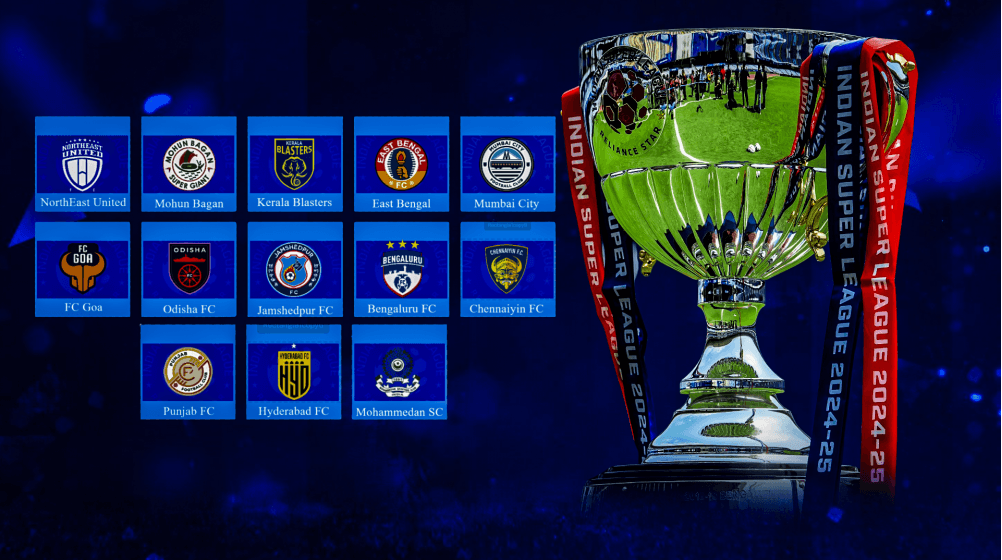Multiple Indian Super League (ISL) clubs have announced the suspension of first-team operations, the halting of salary payments, and the temporary or mutual termination of player and staff contracts as the 2025–26 ISL season remains on hold. Clubs reporting immediate impacts include Bengaluru FC (salaries suspended), Odisha FC & Chennaiyin FC (contracts suspended), and others pausing first-team activities while the federation and league operators remain in a legal deadlock.
The MRA Dispute and Governance Breakdown
At the core of this crisis is the Master Rights Agreement (MRA) between Football Sports Development Limited (FSDL), the league’s commercial operator, and the All India Football Federation (AIFF). The agreement’s renewal is currently stalled due to ongoing legal proceedings, triggered partly by governance issues within the AIFF and an oral observation from the Supreme Court. Fox Sports

This legal limbo has created a vacuum in operational certainty. Without a signed MRA, clubs have no guarantee of participation fees, broadcast revenue, or sponsorship timelines. Eleven ISL clubs jointly urged the AIFF to immediately take the matter to the Supreme Court to avoid what they described as “irreversible damage” to Indian football. Indian Express
Financial Strain and Operational Fallout
At the center of the disruption is the Master Rights Agreement (MRA) between Football Sports Development Limited (FSDL), the commercial operator of the ISL and the All India Football Federation (AIFF). The MRA renewal is effectively frozen after an oral observation from the Supreme Court and ongoing litigation tied to AIFF’s constitution and governance. That legal limbo has prevented a firm agreement for the upcoming season, leaving operators, clubs and sponsors without clarity on the competition framework and commercial calendar. Fox Sports

Clubs have explicitly linked their decisions to this uncertainty, without a confirmed season start date, guaranteed broadcast revenues, or validated participation agreements, many owners say continuing full operations is financially unsustainable. Eleven clubs have urged the AIFF to take the matter to the Supreme Court urgently to avoid “irreversible damage”. India Today
Immediate operational and financial effects
Halting salaries and contracts isn’t just a symbolic gesture, it carries real, tangible consequences:
- Player and staff livelihoods: Bengaluru FC has stopped first-team salary payments, affecting senior players, coaches, and support staff including several from the national team. Al Jazeera
- Club operations: Odisha FC suspended all player and staff contracts and cited expiring participation agreements, sponsorship uncertainty and lack of training access as reasons for the decision. The club has said it will assist players seeking alternative opportunities. Times of India
- Competitive calendar: With the ISL on pause, ideas like hosting a Super Cup are being floated, but nothing can truly replace the stability and stature the league brings to Indian football. NDTV
These decisions have triggered a cash crunch with stadium upkeep, youth programs, and academy commitments still draining funds, but steady income from broadcasts and sponsors delayed or missing, clubs are being pushed into urgent cost-cutting measures.
More Than a Financial Crisis
While the headlines focus on finances, the underlying issue is a systemic governance failure. Modern professional leagues are built on structured commercial agreements and predictable scheduling. The MRA dispute has disrupted the entire ecosystem, from media rights delivery to grassroots development planning.
Sponsorship and Broadcast Concerns

The ISL’s off-field business is hurting just as much as the football itself. Sponsors and broadcasters thrive on a clear, reliable schedule, but every extra week of uncertainty nudges them closer to reworking deals, cutting budgets, or walking away altogether. People in the industry fear that even if the season gets back on track, brands will be far more hesitant to commit, shrinking sponsorship deals. For clubs, that means running on leaner budgets, facing hard calls on keeping or signing star players, and fighting to keep the league’s growth dreams alive. Fox Sports
The Human Element

This crisis isn’t just about governance, it’s affecting lives. Players are left without income and unsure of their future, while support staff on modest wages face limited options. For fans, the blow is cultural; football is part of their identity, and delays, uncertainty, and disputes strain the bond with their clubs. Even with promises of support from some teams, trust has already taken a hit.
Possible Outcomes (ISL)
The coming weeks will decide where the ISL goes from here. If the AIFF and FSDL can strike a Supreme Court–approved deal, contracts could return, the season could be partially saved, and football might find its rhythm again though crammed schedules and changed sponsorships would still test everyone involved. If talks collapse, the Super Cup might keep players on the pitch, but it won’t match the ISL’s pull. Worse, a split with clubs pursuing their own paths could erase years of hard work. The only way forward is quick legal clarity, stronger governance, honest communication, smarter financial planning from clubs, and a united push from fans to protect the game they love.
In The End

The ISL’s layoffs and contract suspensions reveal how fragile football becomes when governance falters. Beyond contracts, it’s about livelihoods, dreams, and fan loyalty. Indian football’s recovery now hinges on swift, decisive leadership.
Check out the latest article on Sportspedia Zone about “Why Shreyas Iyer Has Been Overlooked in Tests Despite Strong Form.”
Bookmark Sportspediazone for more sporting updates and,
Stay tuned!


[…] Check out the latest article on Sportspedia Zone about “ISL Clubs Suspend Staff and Terminate Contracts Amid Ongoing ISL-AIFF Conflict and League Uncertaint… […]
[…] fans miss out by default. High-stakes games deserve weekend slots and evening broadcasts, when working professionals and students can tune in easily. Broadcasters should also stop treating women’s games as […]